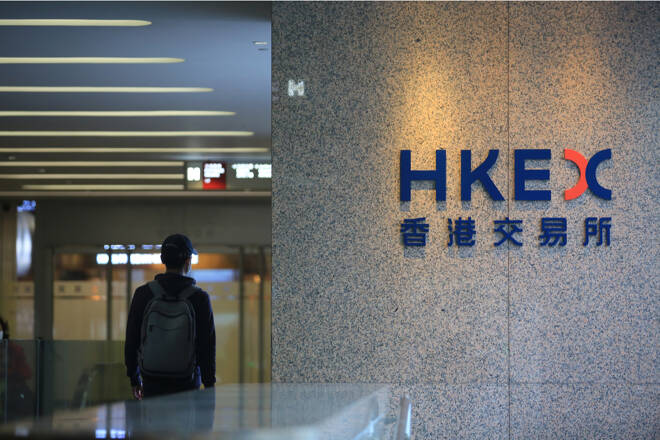Advertisement
Advertisement
Hang Seng Index, ASX200, Nikkei 225: China Services Sinks the HSI
By:
It was a bearish morning for the Hang Seng Index and the broader Asian markets, with economic indicators from China and US-China tensions weighing.
Key Insights:
- It was a bearish start to the Wednesday session. The Hang Seng Index led the Nikkei and ASX 200 into the red.
- Economic indicators from China weighed on market risk sentiment, with private sector activity slowing in June.
- There were no US economic indicators from overnight to influence investor sentiment.
Market Overview
It was a bearish morning session for the Asian markets. The Hang Seng Index led the Nikkei and the ASX 200 into the red.
There were no US economic indicators overnight to influence market risk sentiment. The US markets were closed for the Fourth of July holiday. However, the US futures markets contributed to the bearish start to the day. The NASDAQ and the Dow mini were down 12.25 and 29 points, respectively.
Economic indicators from China continued to test market risk sentiment this morning. After the disappointing Caixin Manufacturing PMI numbers from China, the Caixin Services PMI saw a marked decline at the end of the second quarter.
The Services PMI fell from 57.1 to 53.9. Economists forecast a fall to 56.2. As a result of the weaker Caixin Manufacturing PMI and Services PMI, the Chinese Composite PMI declined from 55.6 to 52.5.
For the global equity markets, deteriorating economic indicators and hawkish central banks are a bad combination. According to the CME FedWatch Tool, the probability of a 25-basis point July Fed rate hike stood at 86.2% versus 86.8% on Monday. Significantly, the chances of the Fed lifting rates to 5.75% in September stood at 19.0%, down from 20.8% on Monday.
Other stats from the morning session included service sector PMI numbers for Japan and retail sales, services, and manufacturing sector data from Australia. Both survey-based reports were bearish.
ASX 200
The ASX 200 was down 0.36% this morning, with economic indicators from Australia adding to the bearish mood. In June, the AIG Manufacturing Index tumbled from -5.1 to -19.8, with the Services PMI down from 52.1 to 50.3. The latest figures supported the RBA decision to hit the brakes on interest rate hikes on Tuesday.
The big-4 had a bearish morning. ANZ Group (ANZ) was down 1.28%, with Westpac Banking Corp (WBC) and The National Australia Bank (NAB) falling by 1.08% and 1.09%, respectively. The Commonwealth Bank of Australia (CBA) also struggled, declining by 0.78%.
However, mining stock had a mixed morning. Rio Tinto (RIO) and Fortescue Metals Group (FMG) saw gains of 0.22% and 0.23%, respectively. However, Newcrest Mining (NCM) and BHP Group Ltd (BHP) struggled, falling by 0.46% and 0.17%, respectively.
Oil stocks had a bearish morning. Woodside Energy Group (WDS) and Santos Ltd (STO) saw losses of 0.57% and 0.52%, respectively. This morning, Brent Crude was down 0.56% to $75.82.
Hang Seng Index
The Hang Seng was down 1.09% this morning, with economic indicators from Hong Kong and China and US-China tensions weighing.
After weaker China Caixin Manufacturing PMI numbers on Monday, the Hong Kong Manufacturing PMI also weakened, falling from 50.6 to 50.3 in June. Economists forecast an increase to 51.5. While the HK PMI drew interest, the China Caixin Services PMI had more impact.
Considering the main Index components, Tencent Holdings Ltd (HK:0700) and Alibaba Group Holding Ltd (HK:9988) were down 0.83% and 1.01%, respectively.
Bank stocks had a bearish morning. HSBC Holdings PLC fell by 0.80%, with The Industrial and Commercial Bank of China (HK:1398) and China Construction Bank (HK: 0939) seeing losses of 1.67% and 0.98%, respectively.
CNOOC (HK: 0883) rose by 0.69%.
Nikkei 225
The Nikkei 225 was down 0.36% this morning, with risk aversion overshadowing a stronger USD/JPY. For the Nikkei, the lingering threat of a government intervention to bolster the Yen likely contributed to the pullback.
From the banking sector, Sumitomo Mitsui Financial Group (8316) and Mitsubishi UFJ Financial Group fell by 0.23% and 1.13%, respectively.
Looking at the main components, Fast Retailing Co (9983) slid by 2.92%, with KDDI Corp (9433) and Tokyo Electron Limited (8035) seeing losses of 0.68% and 0.58%, respectively.
Sony Corp (6758) also saw red, falling by 0.15%, while SoftBank Group Corp. (9984) bucked the trend, gaining 0.15%.
Check out our economic calendar for economic events.
About the Author
Bob Masonauthor
With over 28 years of experience in the financial industry, Bob has worked with various global rating agencies and multinational banks. Currently he is covering currencies, commodities, alternative asset classes and global equities, focusing mostly on European and Asian markets.
Advertisement
